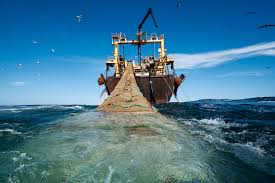 If the European Court of Justice declares the EU-Morocco fisheries deal invalid in its February 27 verdict, surfing on the opinion of its advisor Melchior Wathelet, serious repercussions would ensue putting the EU in “turbulent waters” both at the institutional and foreign policy levels, said Eli Hadzhieva, Founder and Director of Dialogue for Europe.
If the European Court of Justice declares the EU-Morocco fisheries deal invalid in its February 27 verdict, surfing on the opinion of its advisor Melchior Wathelet, serious repercussions would ensue putting the EU in “turbulent waters” both at the institutional and foreign policy levels, said Eli Hadzhieva, Founder and Director of Dialogue for Europe.
In a detailed article on New Europe Website entitled “EU Risks falling into turbulent waters if EU court invalidates EU-Morocco fisheries deal”, Hadzhieva laid bare the flawed arguments put forward by Wathelet who claimed that the agreement is invalid since, according to him, “it does not benefit the local population in the Sahara”
“The southern provinces of Morocco (also called Western Sahara) account for 66% of the total budget, which corresponds to $37 million. Moreover, 75% of the socio-economic benefits of the agreement, such as creation of hundreds of new jobs and improvement of working conditions of tens of thousands of people, are enjoyed by people living in Southern provinces,” said Hadzhieva.
She said that Wathelet based his non-binding opinion on erroneous information. Citing legal experts, Hadzhieva said the Sahara is not an “occupied territory” as Wathelet wishes to call it.
“In legal terms, Western Sahara cannot be defined as such because it does not fulfil the criteria, stipulated by Article 42 of The Hague Convention: Presence of an enemy state on the territory, exclusion of the legitimate authority and substitution by an occupying authority. In fact, when Morocco succeeded Spain in Western Sahara in 1976 in accordance with the Madrid Agreement, there was no Sahrawi State on this territory, which was part of the Moroccan Kingdom prior to the colonization,” she made it clear.
In this respect, she recalled the legal opinion by the Under-Secretary-General for Legal Affairs and the Legal Counsel of the United Nations Hans Corell of 2002, which recognizes Morocco as an ‘administrative power’ with the right to exploit natural resources of the Sahara.
Hence, invalidating the EU-Morocco fisheries agreement will inflict serious losses on the EU and bring confusion to the functioning of the ECJ, she said, warning of the perils of the EU court interfering in international agreements signed by the EU. “This would set a dangerous precedent, as any region or lobbying group in the EU or its neighborhood (as opposed to states having a legal personality) could contest treaties signed by its central government.”
If the court follows the pro-Polisario stands espoused by Wathelet, “a domino effect could occur in Wallonia or Catalonia for instance, which would put the stability of the Union in peril,” she said.
Therefore, scrutinizing international treaties (which are of the order of international law), exceeds the remit of the ECJ which is not entitled to assume the role of the international court of justice.
The ECJ meddling in the fisheries deal, whose negotiation was green lighted by the European Council and the Moroccan government, could also undermine the negotiations led by the UN and toughen the stance of the concerned parties, she warned.
Following Wathelet’s logic would seriously hamper the EU’s relations with its ally, Morocco, which could “feel isolated and less cooperative on security issues in the EU’s southern borders.”
The Founder and Director of Dialogue for Europe concluded her article by ringing the alarm bell as to the connivance between the Polisario and terrorist groups in the Algerian desert and the Sahel.
“Given the Polisario Front’s alleged links to the ISIS, seen as an effort to diversify its resources following the decreasing support from Algeria, it would be wiser for the EU to keep the only stable country in the region Morocco at its arm’s length by enhanced cooperation not only in fisheries but also in other areas, such as security issues, migration, development, anti-radicalization efforts, economic and trade cooperation and relations with the African Union,” she underscored.


